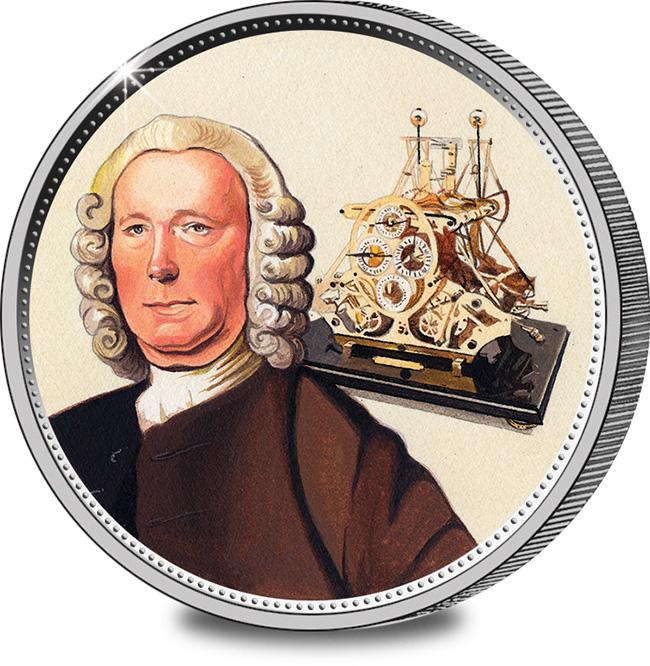
 |
Full name: John Harrison
Born: 3rd April 1693
Invention/Achievement: The Marine
Chronometer
Date of introduction/Achievement: 1762
(Date of proving voyage to Jamaica)
Died: 24th March 1776
|
In the 18th century, Britain's empire was expanding
as its naval power grew. But navigation was still an inexact
science. Longitude could be established by comparing local
time with Greenwich Mean Time, but for this a chronometer was
needed that would perform accurately and reliably in the often
turbulent environment of a sailing ship.
In 1707 four Royal Navy ships were wrecked off the Scilly Isles
with the loss of 1,400 lives, due to the navigator's inability to
accurately calculate their position. Parliament offered a
prize of £20,000 for a solution to the problem of determining
longitude.
John Harrison, a carpenter and clockmaker, set about producing a
clock sufficiently accurate and robust to allow mariners to know
the time at Greenwich. In 1736 he presented his first "Sea
Clock" (later designated "H1") to the Royal Society and it was
given a sea trial to Lisbon and back, during which it performed
well.
However the requirement was for a clock that would perform on
the more arduous transatlantic voyage to Jamaica. Harrison
was granted £500 to develop a more compact and robust version.
After several years work he discovered a serious flaw in his
method, concerning the effect of a ship's yawing on the oscillation
period and thus the accuracy.
Harrison spent another 17 years working on the problem but in
the end was still not satisfied with its performance. In
London in 1758 he saw small watches that were as accurate as his
much larger "sea clocks" (probably due to high grade steels that
had become available. He realised that a watch could do the
job perfectly well if it could be made to perform under rugged
conditions, in different temperatures.
This led to him to produce H4, his masterpiece, only a little
larger than a pocket watch, and would allow mariners to establish
longitude all over the globe.
In 1762 H4 was found to be only 5 seconds in error after a
voyage to Jamaica. It took Harrison some years to obtain the
prize from the government, but eventually with the support of King
George III, he received a total of £23,065.